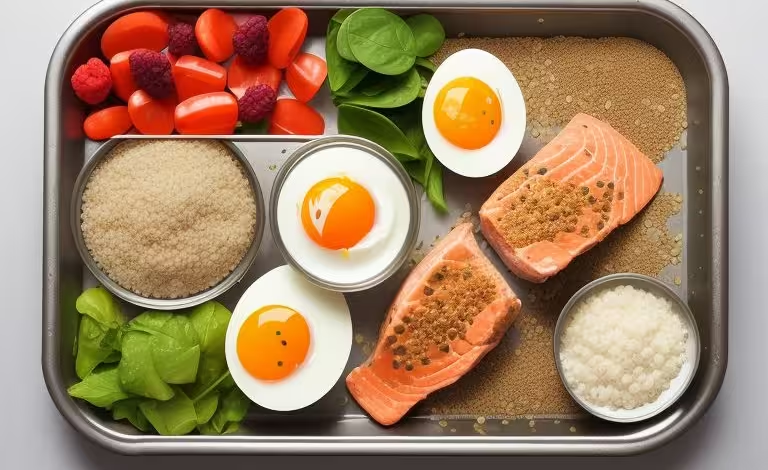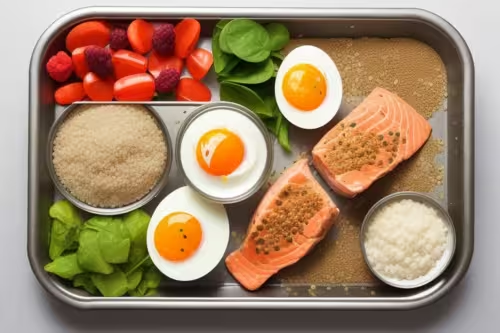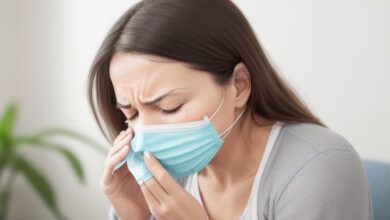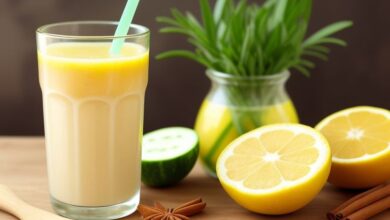
15 High Protein Diet Tips For Weight Loss In Women
Are you looking to shed some pounds and get healthier? A high-protein diet might be just what you need. This guide will take you through everything you need to know about high-protein diets, from how they work to what foods to eat and how to stick to the plan. Let’s dive in and get you on the path to weight loss success!

1. Understanding High Protein Diets
A high-protein diet focuses on consuming more protein-rich foods to help you lose weight. Protein is essential for building muscles, repairing tissues, and maintaining a healthy immune system. It also helps you feel full longer, reducing the urge to snack between meals. For women, this can be particularly beneficial for maintaining muscle mass while losing fat.
2. Benefits of High Protein Diets
High protein diets offer several benefits, especially for women looking to lose weight:
- Increased Fullness: Protein takes longer to digest, keeping you full longer.
- Muscle Maintenance: Helps preserve muscle mass during weight loss.
- Boosted Metabolism: Protein can increase your metabolism, aiding in weight loss.
- Reduced Cravings: Protein can help curb your cravings for unhealthy snacks.
3. How Much Protein Do You Need?
The amount of protein you need depends on your weight, activity level, and goals. Generally, aiming for 0.6 to 0.8 grams of protein per pound of body weight is a good start. For a 150-pound woman, this means consuming between 90 and 120 grams of protein daily.
4. Best High Protein Foods
Here are some top high-protein foods to include in your diet:
- Chicken Breast: A lean source of protein.
- Fish: Rich in protein and healthy fats.
- Greek Yogurt: High in protein and probiotics.
- Eggs: Versatile and packed with protein.
- Beans and Lentils: Great plant-based protein sources.
- Tofu and Tempeh: Excellent for vegetarians and vegans.
5. Creating a High Protein Meal Plan
Planning your meals can make sticking to a high-protein diet easier. Here’s a simple meal plan idea:
- Breakfast: Greek yogurt with berries and a sprinkle of nuts.
- Lunch: Grilled chicken salad with mixed greens and a vinaigrette.
- Dinner: Baked salmon with steamed vegetables.
- Snacks: Hard-boiled eggs, protein bars, or a handful of almonds.
6. Protein Supplements: Yay or Nay?
Protein supplements can be a convenient way to meet your protein goals, especially if you’re busy. Whey protein, casein, and plant-based proteins like pea or hemp protein are all good options. Just make sure to choose a supplement without added sugars and fillers.
7. Combining Protein with Exercise
Pairing your high-protein diet with regular exercise can enhance weight loss and muscle building. Focus on a mix of strength training and cardio to maximize results. Aim for at least 150 minutes of moderate aerobic activity or 75 minutes of vigorous activity each week, along with strength training exercises twice a week.
8. Staying Hydrated
Drinking plenty of water is crucial on a high-protein diet. Protein metabolism can produce waste products that need to be flushed out of your body. Aim for at least 8-10 glasses of water a day to stay hydrated.
9. Avoiding Common Pitfalls
Here are some common mistakes to avoid on a high-protein diet:
- Ignoring Carbs and Fats: Balance your diet with healthy carbs and fats.
- Overeating Protein: Excess protein can be stored as fat.
- Skipping Vegetables: They provide essential nutrients and fiber.
- Not Drinking Enough Water: Stay hydrated to support protein metabolism.
10. Listening to Your Body
Everyone’s body reacts differently to dietary changes. Pay attention to how your body feels and adjust your protein intake as needed. If you experience any negative symptoms, consider consulting with a healthcare provider.
11. Making Sustainable Choices
Choose high-protein foods you enjoy and can see yourself eating long-term. Sustainability is key to maintaining weight loss and a healthy lifestyle. Experiment with different recipes and food combinations to keep your meals exciting.
12. High Protein Diet Myths
There are many myths about high-protein diets. Here are a few debunked:
- Myth 1: High Protein Diets are Bad for Kidneys: For healthy individuals, a high-protein diet does not harm kidneys.
- Myth 2: Protein Makes You Bulky: Women have lower testosterone levels, making it difficult to gain bulky muscles.
- Myth 3: You Can’t Get Enough Protein from Plants: Many plant-based foods are rich in protein.
13. High Protein Recipes
Try these delicious high-protein recipes to keep your diet interesting:
- Protein-Packed Smoothie: Blend Greek yogurt, spinach, berries, and a scoop of protein powder.
- Egg Muffins: Mix eggs with veggies and bake in a muffin tin for a quick breakfast.
- Quinoa Salad: Toss cooked quinoa with black beans, corn, and a lime vinaigrette.
14. Dining Out on a High Protein Diet
Eating out doesn’t have to derail your diet. Look for menu items that are grilled, baked, or steamed. Opt for dishes that include lean proteins like chicken, fish, or tofu. Don’t be afraid to ask for modifications to suit your diet needs.
15. Tracking Your Progress
Keep track of your protein intake and weight loss progress. Apps like MyFitnessPal can help you log your meals and ensure you’re meeting your protein goals. Regularly monitoring your progress can keep you motivated and on track.
A high-protein diet can be a powerful tool for weight loss, especially for women. By focusing on protein-rich foods, staying hydrated, and pairing your diet with regular exercise, you can achieve your weight loss goals. Remember, the key is to make sustainable changes and listen to your body. Here’s to a healthier, fitter you!
By incorporating these tips and strategies, you’ll be well on your way to enjoying the benefits of a high-protein diet. Whether you’re new to this way of eating or looking to refine your approach, this guide provides everything you need to succeed. Happy eating!
Subscribe Now
Enroll for our free updates

Thank You for Subscribing
Thanks for Updating Your Information



